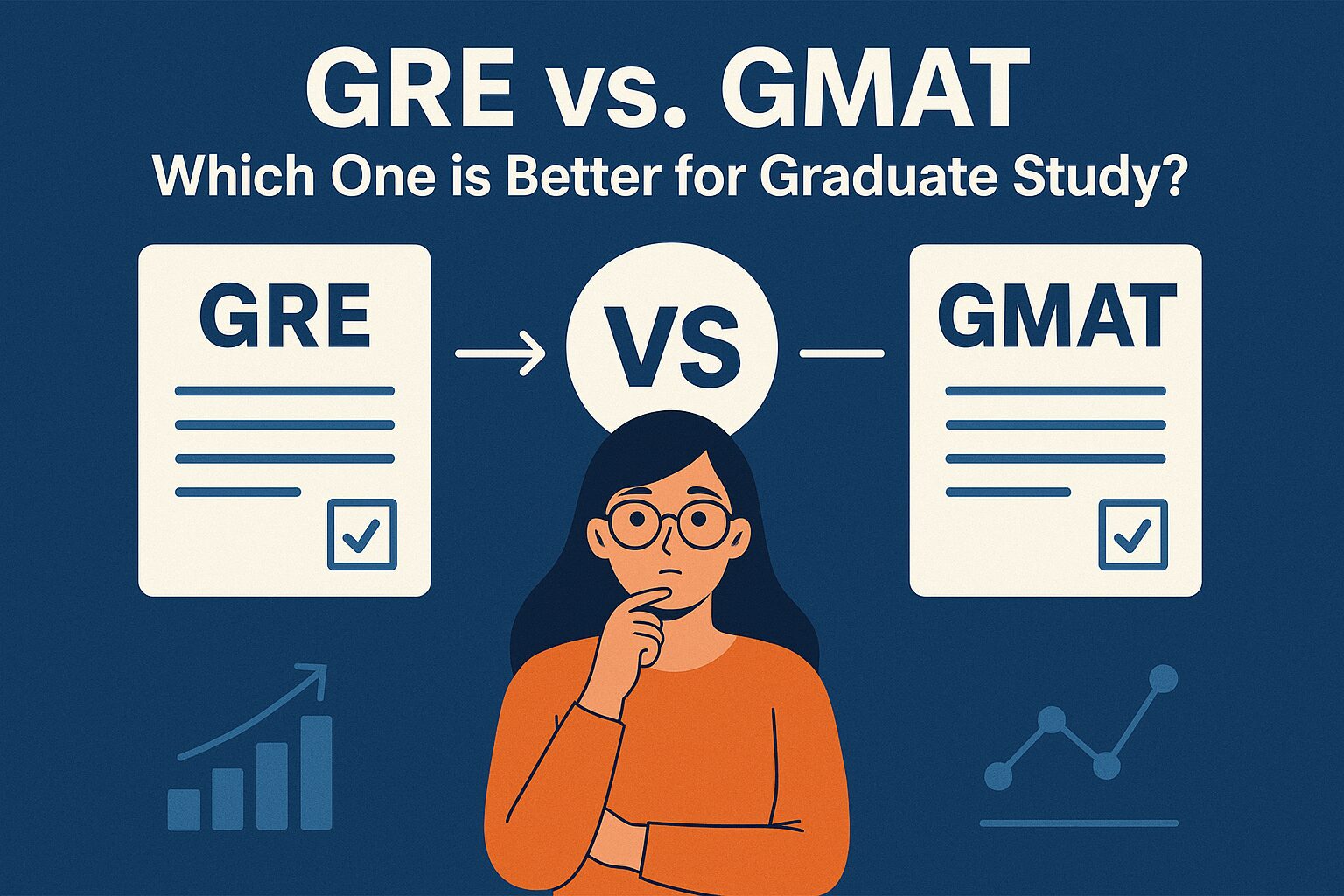GRE vs. GMAT: Which One is Better for Graduate Study?

Choosing the right standardized exam is a critical first step on your path to graduate school. While both the Graduate Record Examinations (GRE) and the Graduate Management Admission Test (GMAT) assess verbal, quantitative, and analytical skills, they are fundamentally different tests designed for distinct academic tracks. Understanding these differences, coupled with strategic application insights, allows you to choose the exam that best highlights your strengths and aligns with your program goals.
The Program Divide: MBA Standard vs. Universal Acceptance
The primary distinction between the two tests lies in their target audience and historical context. The GMAT has long been the gold standard for admission into MBA and specialized business master’s programs (such as finance, accounting, or management). Its content is tailored to measure the specific analytical and reasoning skills crucial for success in a rigorous business curriculum. A strong GMAT score is an unambiguous signal of readiness for business school.
Conversely, the GRE is the universal graduate admissions exam, accepted by a vast array of programs, including Master of Arts (M.A.), Master of Science (M.S.), and PhD programs across nearly all disciplines (Engineering, Sciences, Humanities). Crucially, the GRE has gained significant traction in recent years, with over 1,300 business schools worldwide now accepting its scores for MBA admissions. For applicants considering a dual degree (e.g., MBA/MPP, MBA/JD) or keeping their options open across various fields of study, the GRE offers unparalleled flexibility.
Quantitative Reasoning: Calculator Access and Analytical Depth
The quantitative sections present one of the most significant structural and psychological differences. The GRE Quantitative Reasoning section typically tests more straightforward arithmetic, algebra, and geometry concepts, and it notably allows the use of an on-screen calculator for all questions. This makes it advantageous for students whose strength lies in foundational math but who prefer computational assistance or struggle with high-pressure mental arithmetic.
In contrast, the GMAT Quantitative Reasoning section is generally considered to involve more abstract, complex, and business-oriented reasoning, and it prohibits the use of a calculator to test raw analytical ability. Furthermore, the GMAT includes the dedicated Data Insights section (a combination of Integrated Reasoning and data analysis), which specifically measures a candidate’s ability to analyze and synthesize information presented in charts, graphs, and multi-source tables, a highly practical skill in a business decision-making environment. If your quantitative background is stellar and you wish to prove it without external aids, the GMAT provides a superior platform.
Verbal Reasoning: Vocabulary vs. Critical Thinking Focus
The verbal sections of the exams also test different cognitive muscle groups. The GRE Verbal Reasoning section places a strong emphasis on advanced vocabulary, testing the nuances of language through question types like Text Completion and Sentence Equivalence. Success here often relies on having a broad and deep command of high-level academic English and strong memorization skills.
The GMAT Verbal Reasoning section, however, is less focused on rote vocabulary and more on Critical Reasoning—assessing a candidate’s ability to analyze and evaluate arguments, identify assumptions, and understand logical structure. This section closely mirrors the type of analytical reading and thinking required for case studies and executive communication. If you excel at logic and argument deconstruction, the GMAT may be a better fit; if you have a liberal arts background with a strong vocabulary base, the GRE could give you an edge.
Strategic Considerations: Test Structure and Perception
Both exams are computer-adaptive, but their adaptation styles dramatically impact the test-taking experience:
- Adaptive Style: The GMAT is question-level adaptive, meaning the difficulty adjusts after every correct or incorrect answer. This requires precise time management and a firm strategy for when to guess and move on. The GRE is section-level adaptive, where your performance in the first Verbal/Quant section determines the difficulty of the second section. This allows for slightly more flexibility.
- Review/Revision: The GRE permits you to skip, flag, and return to any question within a section, offering significant control over pacing. The GMAT offers limited review and revision options. Candidates prone to exam anxiety often prefer the GRE’s more flexible structure.
The Score Conversion Nuance
While all business schools profess no preference between the two, a strategic nuance exists. Admissions committees use conversion tools to equate the scores, but test preparation experts have observed that the average GRE scores of admitted MBA applicants often convert to a slightly lower equivalent GMAT score than the average GMAT score of the same cohort. This subtle gap suggests that a very strong GRE score may provide a valuable strategic differentiator, especially for non-traditional applicants (those from humanities, social sciences, or non-corporate backgrounds) who want to signal their quantitative readiness without having to ace the GMAT’s business-specific quant challenges.
Achieve Your Graduate Study Ambition with Edwise Foundation
The GRE vs. GMAT decision is just the first of many crucial steps in your study abroad journey. Achieving a competitive score is vital for gaining acceptance to your dream universities in the USA, Canada, Australia, and the UK.
As a leading education consultancy, Edwise Foundation offers elite test preparation courses for both the GRE and GMAT, led by highly experienced and results-oriented instructors. We understand the nuances of score submission and how to craft an application that leverages your strengths.
Let Edwise Foundation be your guide:
- Strategic Test Preparation: We provide personalized coaching, diagnostic testing to determine your optimal exam, and proven techniques to maximize your GRE or GMAT score.
- Comprehensive Counseling: Our certified advisors provide end-to-end support for university selection (choosing schools that align with your score advantage), application assistance, Statement of Purpose (SOP) evaluation, and securing financial aid and scholarships.
- Proven Success: Join thousands of students who have successfully reached their academic goals with our dedicated guidance and strategic planning.
Ready to determine your best test path and secure admission to a global university?
Contact Edwise Foundation today for a free consultation and personalized guidance on your GRE/GMAT preparation and university application strategy.


